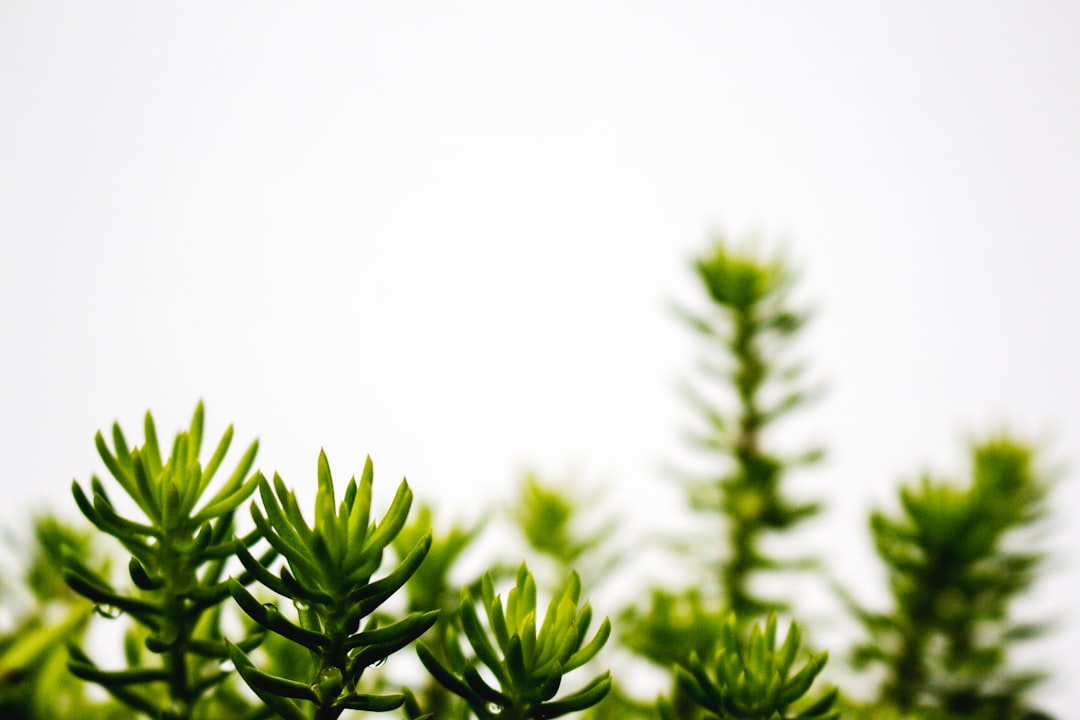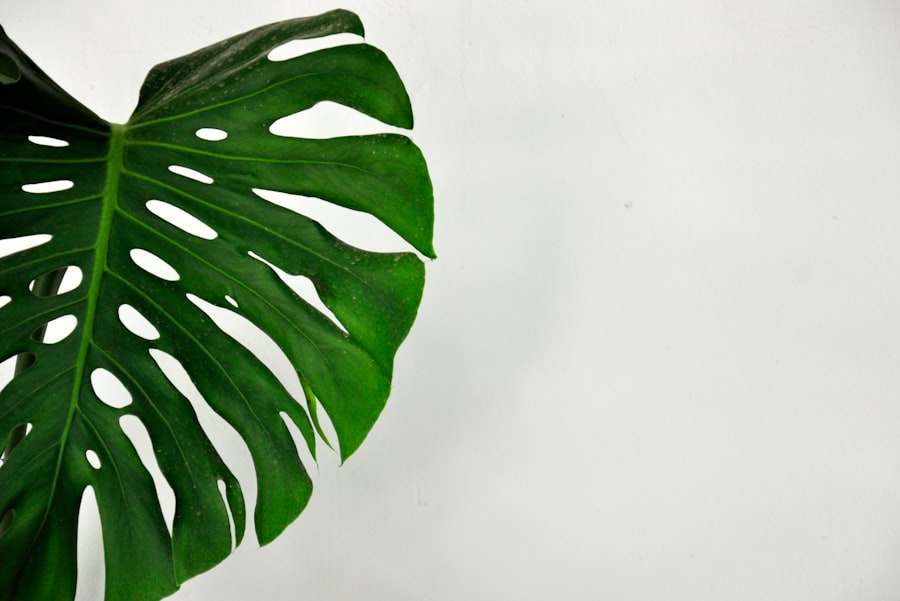Healthy Soil: The Key to Thriving Jade Plants

Jade plants, also known as Crassula ovata, are popular houseplants known for their thick, fleshy leaves and tree-like appearance. These plants are native to South Africa and are often grown indoors as they thrive in warm, dry conditions. While proper watering and sunlight are important for the health of jade plants, the soil they are planted in plays a crucial role in their growth and overall well-being.
Key Takeaways
- Soil is crucial for the growth and health of jade plants.
- Healthy soil for jade plants should be well-draining, nutrient-rich, and slightly acidic.
- Nutrients like nitrogen, phosphorus, and potassium are essential for jade plant growth.
- Testing soil quality and adding organic amendments can improve soil health for jade plants.
- Overwatering and soil compaction can harm jade plants, so proper drainage and aeration are important.
Understanding the Importance of Soil for Jade Plants
The soil in which jade plants are planted directly affects their growth and health. The right soil provides the necessary nutrients, moisture retention, and drainage for the plant to thrive. Jade plants prefer well-draining soil that allows excess water to flow out easily, preventing root rot. Additionally, the soil should be able to hold enough moisture to keep the plant hydrated without becoming waterlogged.
The Characteristics of Healthy Soil for Jade Plants
The ideal soil type for jade plants is a well-draining mix that consists of a combination of organic matter and inorganic materials. A good mix can include components such as peat moss, perlite, and sand. This combination allows for proper drainage while retaining enough moisture for the plant’s needs.
In addition to good drainage, the pH level of the soil is also important for jade plants. They prefer slightly acidic to neutral soil with a pH range of 6.0 to 7.0. Soil pH affects nutrient availability to the plant, so it is crucial to maintain the right pH level for optimal growth.
The Role of Nutrients in Soil for Jade Plant Growth
| Nutrient | Function | Deficiency Symptoms |
|---|---|---|
| Nitrogen | Helps with leaf and stem growth | Yellowing of leaves, stunted growth |
| Phosphorus | Assists with root development and flower production | Poor root growth, delayed flowering |
| Potassium | Regulates water balance and aids in disease resistance | Leaf scorching, wilting, increased susceptibility to disease |
| Calcium | Strengthens cell walls and aids in nutrient uptake | Leaf tip burn, stunted growth |
| Magnesium | Helps with chlorophyll production and enzyme activation | Yellowing between leaf veins, stunted growth |
| Sulfur | Assists with protein synthesis and plant structure | Yellowing of leaves, stunted growth |
Jade plants require certain essential nutrients for healthy growth and development. These nutrients include nitrogen (N), phosphorus (P), potassium (K), calcium (Ca), magnesium (Mg), and trace elements such as iron (Fe) and manganese (Mn). Nitrogen is important for leaf growth, phosphorus promotes root development, and potassium helps with overall plant health and disease resistance.
Calcium and magnesium are essential for the formation of strong cell walls, while trace elements like iron and manganese are necessary for various metabolic processes within the plant. These nutrients can be provided through the soil or through fertilizers.
How to Test and Improve Soil Quality for Jade Plants
Testing the quality of the soil is an important step in ensuring the health of jade plants. There are several methods to test soil quality, including using a soil testing kit or sending a sample to a laboratory for analysis. These tests can determine the pH level, nutrient content, and overall fertility of the soil.
Once the soil quality has been assessed, improvements can be made through amendments and fertilizers. Organic matter such as compost or well-rotted manure can be added to improve soil structure and fertility. Additionally, specific fertilizers can be used to provide the necessary nutrients for jade plants.
The Benefits of Organic Soil Amendments for Jade Plants

Using organic amendments in the soil has several benefits for jade plants. Organic matter improves soil structure, allowing for better drainage and aeration. It also increases the water-holding capacity of the soil, ensuring that the plant receives adequate moisture.
Organic amendments also contribute to the overall fertility of the soil by providing essential nutrients over time. They promote beneficial microbial activity in the soil, which aids in nutrient cycling and improves overall plant health.
Common organic amendments include compost, well-rotted manure, and worm castings. These can be mixed into the soil before planting or applied as a top dressing around established plants.
The Risks of Overwatering and Soil Compaction for Jade Plants
Overwatering is one of the most common mistakes made when caring for jade plants. Excess water can lead to root rot and other fungal diseases that can harm or kill the plant. It is important to allow the soil to dry out between waterings and to ensure that the pot has proper drainage.
Soil compaction is another issue that can affect the health of jade plants. Compacted soil restricts root growth and prevents the plant from accessing necessary nutrients and water. To avoid soil compaction, it is important to avoid heavy foot traffic around the plant and to periodically aerate the soil by gently loosening it with a fork or small garden tool.
Choosing the Right Soil Type for Jade Plants
When selecting soil for jade plants, it is important to choose a well-draining mix that provides adequate moisture retention. There are several types of soil mixes available, including cactus and succulent mixes, which are specifically formulated for plants like jade plants that require good drainage.
It is also possible to create a custom soil mix by combining components such as peat moss, perlite, and sand. The key is to ensure that the soil allows excess water to flow out easily while retaining enough moisture for the plant’s needs.
How to Maintain Soil Health for Long-Term Jade Plant Growth
Maintaining soil health is crucial for the long-term growth and health of jade plants. Regularly monitoring the moisture levels in the soil and adjusting watering accordingly is important to prevent overwatering or underwatering.
Periodically testing the soil pH and nutrient levels can help identify any deficiencies or imbalances that need to be addressed. Adding organic amendments such as compost or well-rotted manure can help replenish nutrients and improve soil fertility over time.
Regularly inspecting the plant for signs of disease or pest infestation is also important. Promptly addressing any issues can prevent them from spreading to the soil and affecting its health.
Tips for Fertilizing Jade Plants with Soil-Based Nutrients
Fertilizing jade plants with soil-based nutrients can help provide the necessary nutrients for healthy growth. It is important to select a fertilizer that is specifically formulated for succulent plants or cacti. These fertilizers typically have a balanced ratio of nitrogen, phosphorus, and potassium, as well as trace elements.
When applying fertilizer, it is important to follow the instructions on the packaging and avoid over-fertilizing, as this can lead to nutrient burn or other issues. Fertilizer should be applied during the growing season, typically from spring to early fall, and can be diluted in water before application.
The Connection Between Healthy Soil and Disease Prevention in Jade Plants
Healthy soil plays a crucial role in disease prevention in jade plants. Well-draining soil helps prevent root rot and other fungal diseases that can occur due to overwatering. Proper soil pH and nutrient levels also contribute to overall plant health and disease resistance.
Common diseases that can affect jade plants include powdery mildew, root rot, and leaf spot. Regularly monitoring the plant for any signs of disease and promptly addressing them can help prevent the spread of disease through the soil.
In conclusion, soil plays a vital role in the growth and health of jade plants. The right soil type, pH level, and nutrient content are essential for optimal growth and disease prevention. Regularly testing and improving soil quality, using organic amendments, and avoiding overwatering and soil compaction are key to maintaining healthy soil for long-term jade plant growth. By understanding the importance of soil and implementing proper soil care practices, jade plant owners can ensure the health and longevity of their plants.
If you’re looking for the perfect soil for your jade plant, look no further! We have found an informative article on Lawn World that provides valuable insights on the best soil composition for jade plants. This article discusses the importance of well-draining soil and offers tips on how to create a suitable mix for your jade plant’s needs. To learn more about this topic, check out the article here.
FAQs
What type of soil is best for a jade plant?
Jade plants prefer well-draining soil that is slightly acidic. A mixture of potting soil, sand, and perlite is ideal for jade plants.
Can I use regular garden soil for my jade plant?
No, regular garden soil is too heavy and can retain too much moisture, which can lead to root rot in jade plants. It is best to use a well-draining potting mix specifically formulated for indoor plants.
How often should I water my jade plant?
Jade plants are succulents and can store water in their leaves, so they do not need to be watered frequently. Water your jade plant when the top inch of soil is dry to the touch.
Can I fertilize my jade plant?
Yes, you can fertilize your jade plant during the growing season (spring and summer) with a balanced fertilizer. However, be careful not to over-fertilize, as this can damage the plant.
How often should I repot my jade plant?
Jade plants do not need to be repotted often and can actually thrive in slightly cramped conditions. Repot your jade plant only when it has outgrown its current pot or if the soil has become too compacted.



